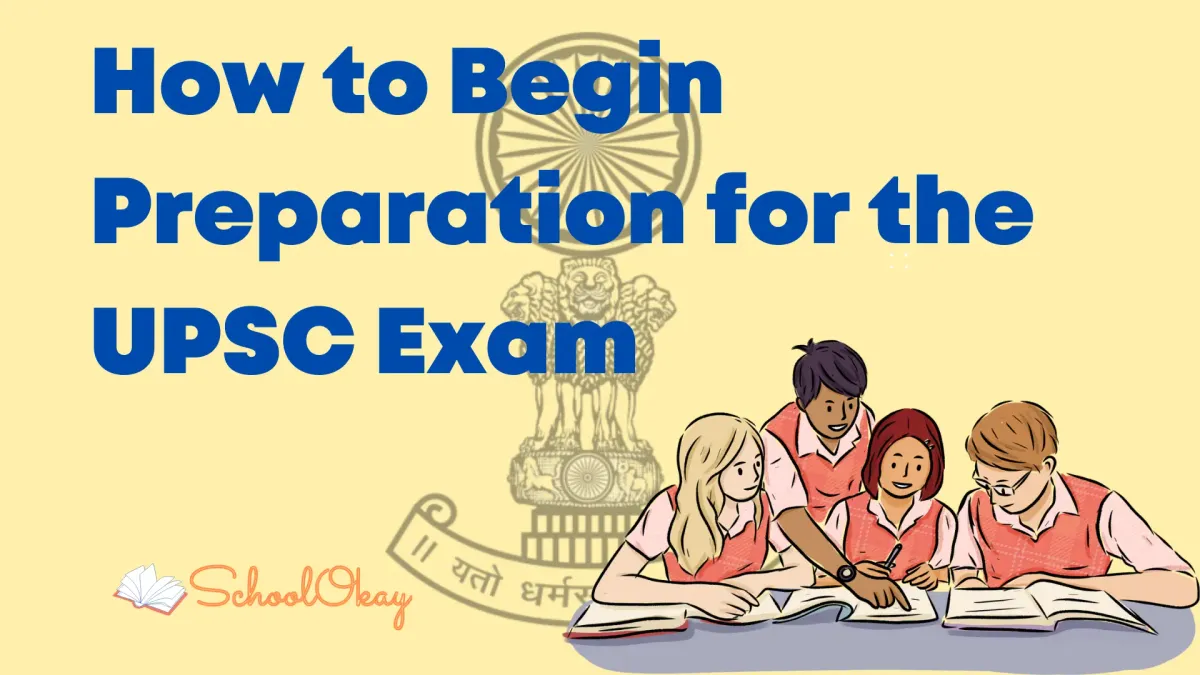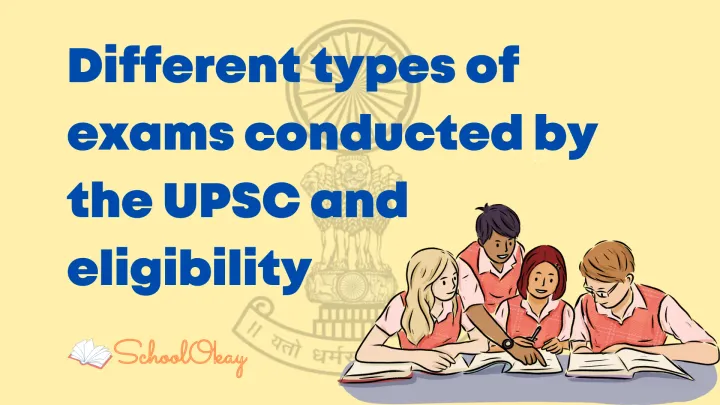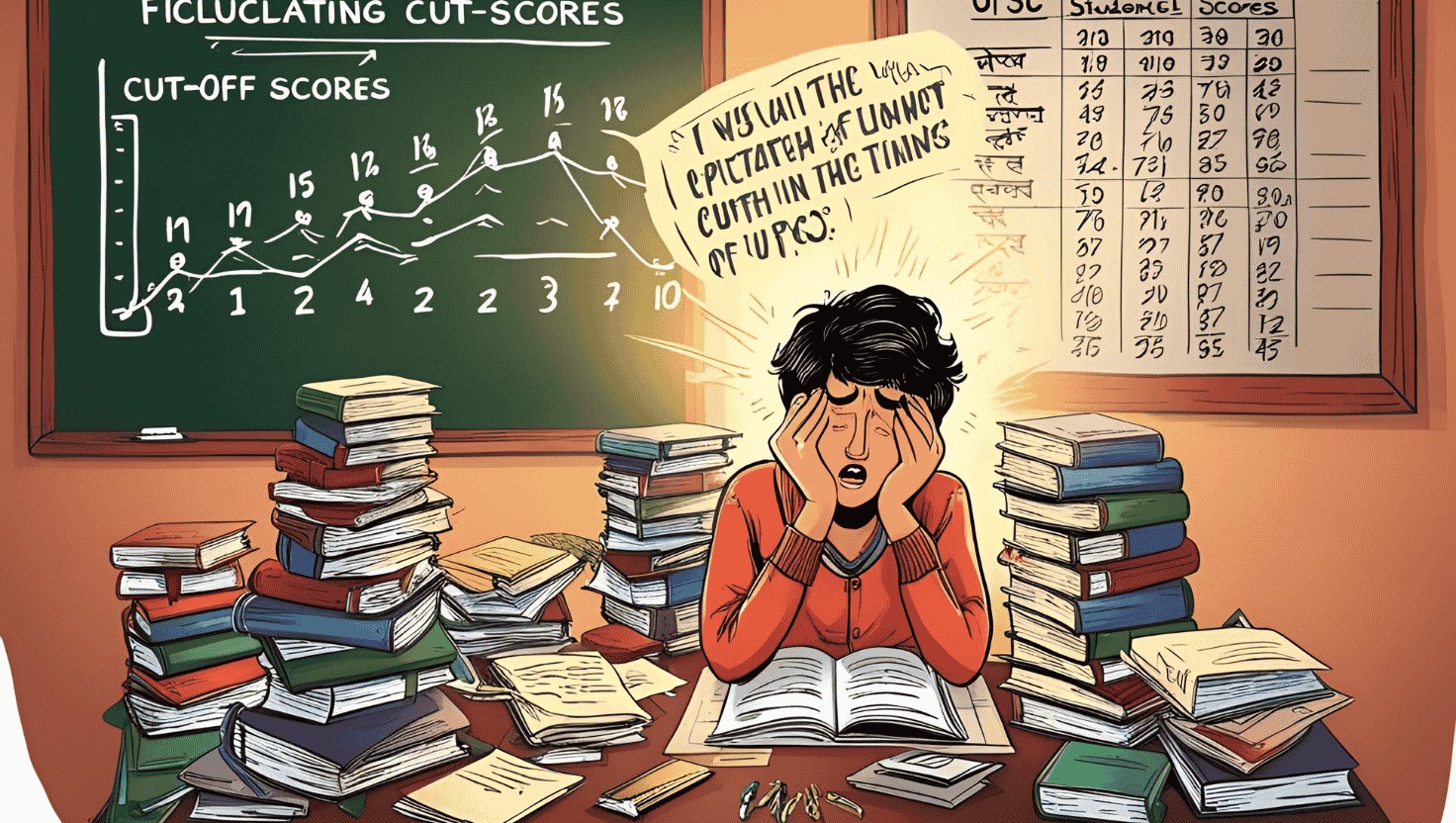How to Begin Preparation for the UPSC Exam
The UPSC examination is one of the most prestigious exams in India, with lakhs of individuals taking it each year. But only a small number of the

The UPSC examination is one of the most prestigious exams in India, with lakhs of individuals taking it each year. But only a small number of these people pass the test and get to live out their dream of becoming an IAS.
The IAS examination is not only difficult but also highly unpredictable, and many people fail it on their first attempt. However, if you focus on your goals and are willing to give your all to your preparations, it is possible to pass the exam for the first time only.
We attempted to update all of the information that will assist you in properly preparing for and passing your UPSC examination on the first try.
How should I prepare for the UPSC exam?
You cannot pass the UPSC examination solely by being a bookworm. The personality test round is the last part of the UPSC exam.
- In this round, the UPSC board looks at the candidate's personality and decides if the candidate is qualified for the job or not.
- Aside from academic knowledge, it is critical that the individual focus on developing their overall personality. Also, when discussing academics, the primary goal should not be to complete the syllabus but rather to focus on and memorise information about the most recent current events or happenings in the country or beyond.
Some important tips to help you prepare for the UPSC exam so that you can score well and easily.
Learn about the UPSC exam in advance
- First and foremost, you must be aware of the upcoming examination date.
- You must also be aware of the UPSC exam pattern and the type of questions that fall into the UPSC exam.
- Also, Choose subjects wisely for your UPSC preparation.
- Know the number of attempts you got for the UPSC exam.
- If you know the date ahead of time, you can plan your schedule and figure out how much time you can spend on each subject.
- You must have a proper awareness of the number of attempts you got in your hand.
- For a general category candidate, only six attempts are permitted. As a result, you should be well prepared before taking the exam. If you are a first-time exam taker, you should prepare for at least 12 to 14 months.
- If you have a job and want to prepare for the UPSC, make sure you plan your time well and have a good study plan.
- With technology, it's easy to work and study these days, so think about this option before quitting your job. You'll be able to do well at both.
Create a timetable before starting your UPSC exam preparation
- If you want to be an IAS officer, you must start acting like one. If you want to be an officer, you must be well-organised in your daily routine.
- Make a proper timetable for yourself before you begin your preparation. Making a timetable will make your preparation easier and more streamlined. You will be more organised and able to complete your work on time if you use deadlines.
- Analyse the subjects on your syllabus and understand your strengths and weaknesses accordingly.
It is critical to understand the syllabus.
Knowing the UPSC syllabus is the most important thing to do before beginning your preparation and going through the books.
The UPSC has promised to provide a comprehensive syllabus for the civil service preliminary and main examinations.
Make a schedule for yourself.
It is essential for people who want to take the UPSC civil service exam to understand the syllabus.
Knowing the syllabus will help you choose relevant study materials and put the subjects in order of importance.
Reading the newspaper for current affairs is essential.
- Newspaper reading is a critical component of the IAS examination.
- You cannot expect to pass the examination if you do not read the daily newspaper or have knowledge of current events.
- Since the questions on civil service exams are often directly or indirectly about current events, it is important to keep up with the news.
- All this will give you an edge as you study for the exam.
Optional subject selection
The optional subjects count for 500 marks in the UPSC final tally, so you must choose the optional subject wisely after considering the pros and cons of each subject that you have in mind, as choosing the optional subject that you are good at will benefit you.
There are some things to think about before taking any optional subjects, such as
- You must consider your level of interest in the subject.
- It is necessary to have prior knowledge of its academic background.
- GS paper overlaps.
- Study materials are available.
- Take coaching for the subject that is available to you for the exam.
Make use of NCERTs.
- When preparing for the UPSC examination, textbooks from classes 6 to 12 play a critical role because aspirants can easily obtain basic concepts and theoretical knowledge from these NCERT books, which are also reliable.
- The NCERTs provide very coherent information because the source for these books is the government itself, making them very reliable.
- Apart from this, it has been noticed that many of the questions on past UPSC exams came straight from the NCERT book.
- Undoubtedly, NCERTs are the best books to start your preparation for the UPSC examination. Other textbooks can be used in addition to NCERTs for advanced knowledge.
Making notes
- As important as it is to read NCERTs and other books, it is also important to read male notes. Making short notes during UPSC preparation is extremely beneficial.
- Because you will be well aware of the vast syllabus for the UPSC exam if you are preparing for it, thus, taking notes not only helps to keep track of the syllabus covered but also serves as a handy reckoner for revision.
- Separate files and notebooks can be used for different subjects. These files are crucial when it comes to adding current affairs information. Many people prefer them because files make adding notes to a topic easier.
Click here to learn the techniques to make notes for the UPSC examination.
Practice writing answers.
Another consideration when preparing for the exam is the answer booklet's time and space constraints.
As a result, candidates must be able to answer questions quickly and efficiently while using as few words as possible.
This process is not possible unless you have sufficient knowledge and answer-writing practice.
Examine the previous year's UPSC papers.
- Previous year's exam papers are the most reliable source of information about the UPSC exam pattern.
- It is beneficial to be aware of the exam pattern, question types, difficulty levels, etc.
- You can easily check the trends in the UPSC exam papers because it will also help you understand which questions are the most important in a specific subject and where you should focus your attention.
- You can also use these papers to evaluate yourself, which will help you prepare well for the UPSC exam.
Prepare by taking a mock test series.
If you want to do well in the UPSC exam, you should be aware of the importance of self-evaluation. It can help people who want to take the civil service exam see and learn from their mistakes.
It also assists candidates in following through in preparation and identifying their strengths and weaknesses to work on them.
Note: Thus, experts strongly advise you to participate in the mock test series, especially if you are not taking any coaching and are preparing solely at home. Because it will allow you to access yourself more deeply and improve.
Revision
When taking a hard test like the UPSC, it is important to go over the topics more than once.
Because the UPSC exam syllabus is so long and covers so many different topics, it is easy to forget what you have already learned.
To avoid any lag in your preparation, you must revise as much of the syllabus as possible.
Significant government resources
When you take an examination like the UPSC, your ultimate goal is to get a good position. Because of this, there are a lot of government resources you can use to help you study for the test.
Many government websites, such as PIB, PRS, and national television broadcast on Rajya Sabha TV, can help you prepare for the exam.
Here check the must-watch channels for the UPSC aspirants.
Read Magazines that are relevant
Numerous magazines can be useful in preparing for the UPSC exam. Other publications like;
- Yojana.
- Kurukshetra.
- Economic & Political Weekly.
- And others fall into this category.
You should definitely read these magazines because they contain important information on various topics such as agriculture, the economy, governance, politics, etc.
Many websites can provide you with at least one of these magazines online, such as Byjus.
UPSC examination passing the interview
The final step in passing the UPSC examination is passing the interview or personality test.
This stage is crucial in the entire process, and it does not only refer to academic knowledge; there is more to it.
The presence of mind, communication skills, diplomatic skills, reaction to stress, and other factors will be considered during this stage of the UPSC clearance process.
Not only that, but you will be asked questions about your hobbies, work experience, education, and so on, if you have any, and you should focus on these as well as brush up on your skills.
Maintain a positive attitude.
The most important aspect of passing the UPSC examination is maintaining a positive attitude in all situations. There will undoubtedly be times when it feels overwhelming, and you feel depressed or as if you can't do it, but it is critical to remain optimistic.
Remove negative thoughts from your mind and focus on hard work and doing your best; you will undoubtedly succeed with your hard work.
Concentrate on fundamental concepts.
Those who want to pass the civil service examination and contribute to nation-building should understand the fundamental concepts and know exactly what it takes to pass the exam.
These candidates should be well-versed in the country's history and major developments. Thorough knowledge of the country, its culture, society, and language is an unavoidable requirement for being well prepared for the examination.
Preparing for the exam does not require you to be a bookworm; instead, an aspirant with practical knowledge is essential.
Be true to yourself.
The interview portion of the examination is not intended to assess a person's knowledge of a specific subject. However, when answering questions, the candidate should be honest and speak from the core.
Candidates believe that if they lie about their hobbies and qualifications, they will pass the exam, but this is not true. Lying about all of this will never help the candidate.
The interviewers present are not only there to ask questions but also to evaluate the candidate's personality and ability to understand that a "no" means a "no" and cannot be a "yes" at any cost.
So, when answering questions or presenting yourself in an interview, you must be honest and true to yourself.
Conclusion
Most people agree that the UPSC exam is one of the most challenging, but if you study well, you should be able to pass it easily. You need proper personality development also besides being good in academics.
The UPSC examination requires you to study thoroughly and prepare for all rounds of the examination. The interview is just as important as the other rounds; you must work on your personality, skills, and hobbies. This article has provided some pointers you can use to pass your UPSC exam.
Also read:
Most Popular Humanities Careers for students.
How to balance your studies and work during graduation
Share and subscribe to the blog by email.




Comments ()